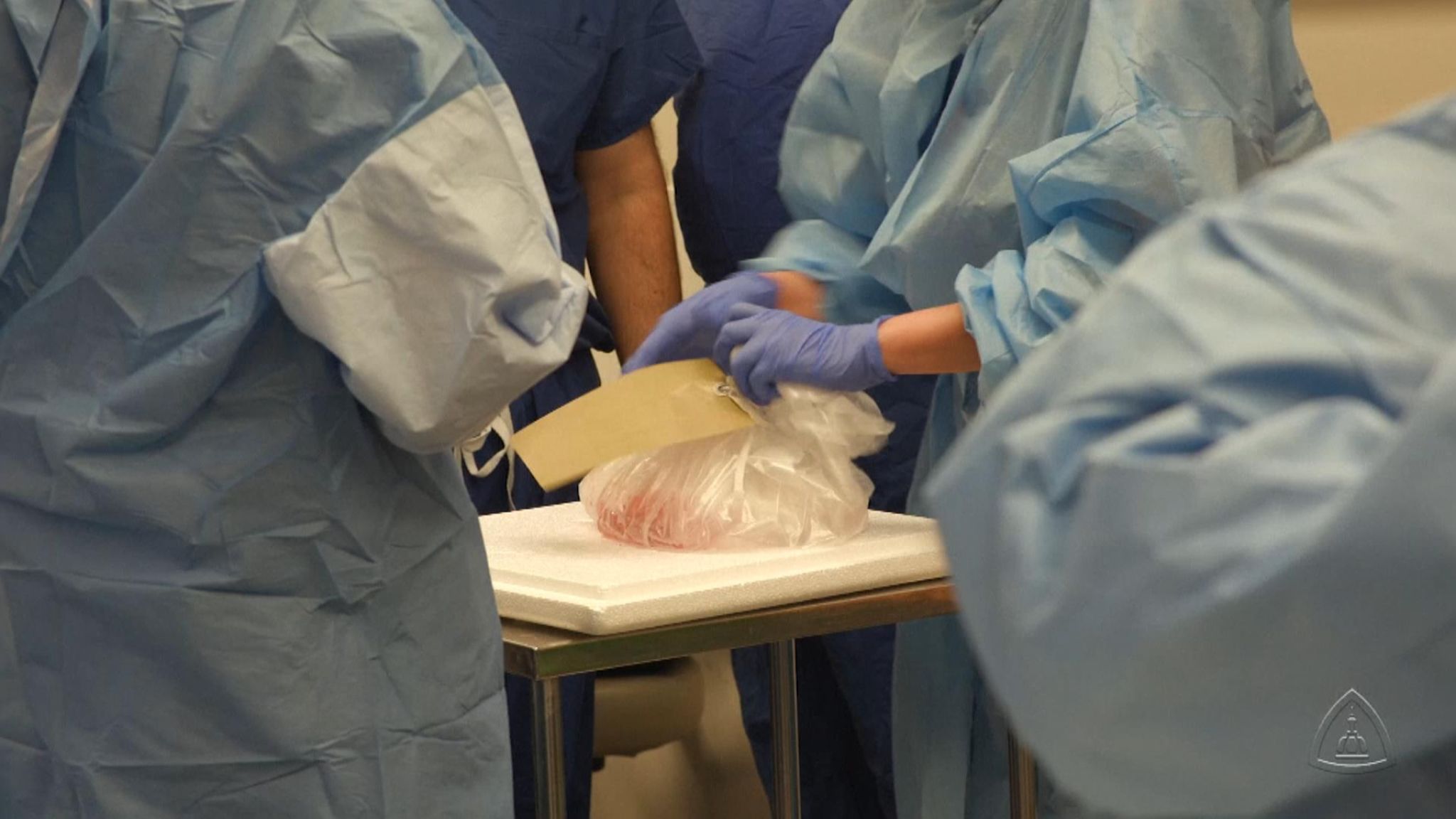A veteran of the American army who lost his legs and genitals during a roadside bomb explosion in the middle east has said he “feels normal again” after doctors performed first full penis and scrotum transplant on him.
Sky News reports that man was badly injured while serving in Afghanistan but underwent the landmark surgery in March 2018 to restore his genitals.Doctors at Johns Hopkins University in Baltimore, Maryland rebuilt his entire pelvic region from the parts of a deceased donor, which is said to have restored “near-normal sexual function and a major improvement in quality-of-life”.
The team provided an update on his condition in the New England Journal of Medicine, revealing how the former soldier had returned to school and was able to live independently.
As well as an almost complete return of sexual capabilities, a full urinary function has also been restored.
Dr Rick Redett, a professor of plastic and reconstructive surgery at the university, told NBC News that the patient had told him it was “the first time he’s felt normal in a long time”.
Also Read: Senate cannot determine who runs NDDC – Wike
The professor added: “He’s doing very well. The graft has taken nicely. Rejection hasn’t been much of an issue, and he has a very good return of function.”
While a handful of successful penis transplants have been reported in recent years, this was the first to reconstruct the scrotum as well – making it far more complex and expensive than previous procedures.
The operation took 14 hours and saw surgeons connect nerves, blood vessels, skin, muscles and tendons to rebuild the penis and extensive surrounding tissue.
Speaking after the procedure, Dr Redett said the team had “really replaced like with like”.
He added: “We looked at the defect our patient had and procured the exact same graft from our donor.”
The only sexual function not restored is the ability to produce sperm, as no testicles were transplanted.
But the man, who wishes to remain anonymous, is able to have erections and orgasm.
Surgeons at the university have described lost penises as “an unspoken injury of war”, suffered in silence by patients who face stigma as well as a loss of function.
Dr Redett said: “With the changes in body armour and the improvements in medical care in the field, IEDs (improvised explosive devices) blow off your legs and your genitalia, but you survive.”
According to a previous study in the Journal of Urology, 1,367 male soldiers serving in Afghanistan and Iraq suffered penis injuries between 2001 and 2013.
There have also been operations to help men who have lost their penis by other means, but less than half a dozen have been reported worldwide.
Among them, doctors at Massachusetts General Hospital in Boston carried out the surgery in 2016 to help a 64-year-old man who had lost his penis to cancer.




